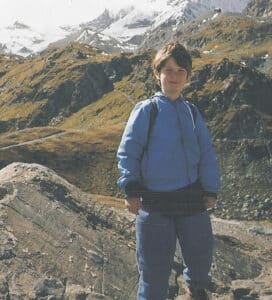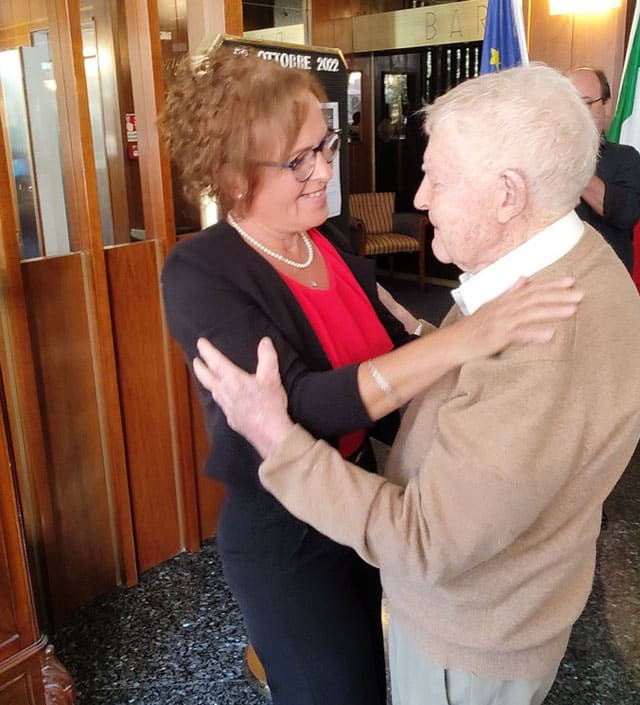Retire at 65? I’d always expected it and was looking forward to reading all the books I’d never had time for. It has been nothing like that. Instead, since 65 I have worked as hard as, sometime harder than, at any other time in my life.
Until then I had been an economics journalist in England for the Daily Telegraph, then editor of a newsletter on mutual funds in the U.S. I faced deadlines every day in both cases. Not exactly a slothful life.
But at 65 I started working earlier in the day, finishing later and treating weekends like any other day.
Sadly, I have to tell you that all this was due to a tragedy. A few months after my 65th birthday, 28 years ago, while we were on a family vacation in Italy, our 7-year-old son, Nicholas, was shot by two small-town criminals who mistook our rental car for one carrying a cargo of jewelry to retail stores.
My wife, Maggie, and I donated Nicholas’ organs and corneas to seven very sick Italians, four of them teenagers. We were then bombarded by so many invitations to describe how life was for us now that it became my (unpaid) life’s work.
A powerful mission

Nothing has been the same since Nicholas died — never again could I go out with him for one of our walks, never hear him say “Goodnight, Daddy.” But we knew how vital it was to tell every detail so that people around the world would see how every decision to donate organs could save multiple families from the devastation we faced — and how such a decision could make a loss like that easier to bear.
So, we wrote and wrote — for newspapers and magazines, learned journals and newsletters, publications for boy scouts and nuns. We gave speeches to audiences ranging from a handful of surgeons to thousands of teachers and millions of television viewers. We spoke at hospitals and in religious institutions of all faiths. I wrote a book, “The Nicholas Effect,” that became a standard work in healthcare settings all over the U.S. and was the basis for a television movie starring Jamie Lee Curtis. More than 80 million people worldwide have seen the movie, called “Nicholas’ Gift.”
Thousands saved, but more work ahead
Giving away his body parts has not diminished Nicholas’ stature, as some parents fear: It has enhanced it, taking the smiling, imaginative, idealistic little boy we knew and adding to it the power of helping others when no one else could. In Italy alone organ donation rates tripled in the 10 years after he was killed — a rate of increase no other country has ever approached — so we know literally thousands of people there are alive there who would have died.
Around the world, awareness of the shortage of donated organs grew, as people realized for the first time that at any moment they might need a new heart, lungs or other vital organ — and that to get them some family would have to resist the overwhelming pressure to turn inward in grief.
In developing countries, the stakes are higher still: Every year, hundreds of thousands of people die because the number of donated organs is so tiny. That’s why a group of eminent transplant doctors (and me!) have started a campaign of public awareness in those countries. It is a dauntingly difficult task — everything is so scarce — but we have to start sometime. So, at 94, it looks like I have a job for life.
The joy of ‘growing old’
Meanwhile, five of Nicholas’ seven recipients are still alive.
To choose one example: Maria Pia Pedalà, a 19-year-old at the time, was in her final coma due to liver failure the day Nicholas died. “We’d given up on her,” her doctor told us. But instead, she bounced back to good health; married her loyal sweetheart, Salvatore, two years later; and two years after that had a baby — whom they called Nicholas.
Now her Nicholas is taller than me and healthy enough to be in the Italian coastguard. Maria Pia herself, always radiant whenever we meet, is 47. She gets up by 5.30 am daily, keeps the house clean and tidy, gardens, cooks and deals with all the other needs of a loving family.
She also watches her health carefully, goes to bed early, eats sensibly and takes her medications meticulously, feeling she has an obligation to both the healthcare staff who have kept watch over her from her teenage to middle years and to the family who saved her life. The result is she can do everything normal people of her age can do — and in a lineup, no one would pick her out as the one who had been the sickest. So, when I saw her in Sicily recently and she pointed out that she wears glasses now “because I am growing old,” growing old seemed a very reassuring thing to do.
The elderly can donate, too
To know more about organ donation please go to Donate Life America (donatelife.net). If, after reading its message you want to donate, you can put your name on the national registry by simply filling in a form online. At any time, you can change your mind. People with some illnesses cannot donate but only an individual diagnosis can tell so put your name down and let the doctors decide. Even if they say, “No,” you might easily be able to donate your corneas to ward off blindness, skin to cure excruciating burns or bone to straighten spines. The elderly are often elated to find they can still do something that important.
Additional reading: Saving Lives by Advancing Organ Transplants Is this Advisor’s Passion
Transplantation is a medical miracle. Even though it is an everyday procedure in hospitals all over the world, it doesn’t stop being a miracle that physicians can take a part of someone who has died, put it into the body of someone who is dying and bring out of it a healthy person.
It’s understandable, isn’t it, that working late at night on a subject like this, as I’m doing now, doesn’t seem like work at all?
Reg Green was the chief business writer for the London Daily Telegraph, a freelance commentator for the BBC, the VP of Communications for the Investment Company Institute, and the founder and editor of the Mutual Fund News Service, an investment newsletter. He is the author of the book “The Nicholas Effect” and advocates, with his wife, Maggie, for organ and tissue donation worldwide as president of The Nicholas Green Foundation. “The Nicholas Effect” is available online at different outlets such as Amazon, Google and Walmart.
[Editor’s note: I remember hearing Nicholas’ chatter in the background during phone calls in the early 1990s with Reg, then editor of the Mutual Fund News Service newsletter — J.K.]







